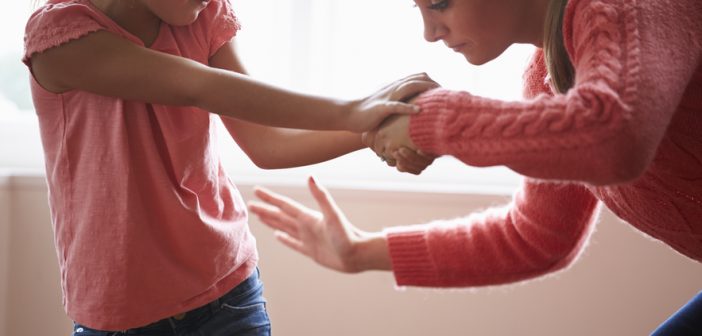I remember I was at a party, a group of mates were all regaling tales of the outrageous ways their parents disciplined them. We all laughed and shared some pretty scary stories. At the time it was hilarious. Now that I have my own children, I find those stories pretty unnerving.
The fact is, many people my age and older were smacked as kids. It’s how things were done in that generation. I was at school when teachers were allowed to issue corporal punishment by cane or strap. So to be smacked by your own parent doesn’t seem that outlandish.
Nowadays, it is a source of contention rife with opinions. To smack or not to smack? Opinions and judgement aside, lets look at the science.
The Study
Elizabeth Gershoff of The University of Texas and Andrew Grogan-Kaylor of The University of Michigan looked at 50 years of studies undertaken on the subject involving over 160,000 children. They defined smacking as ‘hitting a child on the buttocks or extremities with an open hand’.
What they found is that smacking children led to anti-social behaviour, aggression, lower self-esteem or mental health problems. Furthermore the studies showed that children were not disciplined from smacking.
Gershoff explains in a statement, “We found that spanking was associated with unintended detrimental outcomes and was not associated with immediate or long-term compliance”.

The Alternative
Positive parenting is a way of interacting with your children and providing positive reinforcement to encourage the behaviours you want to see. It is highly effective and helps to boost confidence in children as well as give them a sense of independence.
Children look to their parents as role models to learn behaviours. I know myself how challenging being a parent is. Add to that a lack of sleep and it’s so easy to fly off the handle. Identify the traits within yourself that you want to improve. Meditation, yoga or any other exercise you enjoy will go a long way in calming the nerves and clearing the mind.
Breaking the cycle
The researchers made an interesting point that, “The finding that a history of received spanking is linked with more support for spanking of children as an adult may be an example of intergenerational transmission of spanking, or it may be an example of adults selectively remembering their past as a way of rationalising their current beliefs.”
As a society, we are continually growing, learning and evolving. There were many things that happened in the past that are no longer deemed acceptable today. It’s part of our evolution.
This study doesn’t highlight flaws in parenting; it outlines the detrimental effect of smacking despite the best of intentions. Parenting is hard and can be really challenging. All parents want the best for their children. So with this research in mind, parents can make more informed decisions on how to best install discipline and break the cycle.

